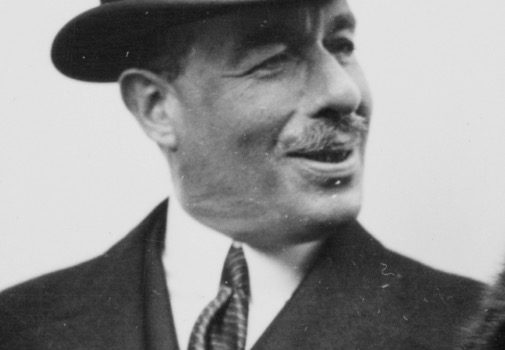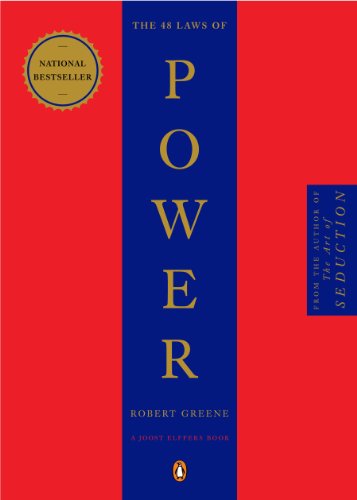

This article is an excerpt from the Shortform summary of "The 48 Laws of Power" by Robert Greene. Shortform has the world's best summaries of books you should be reading.
Like this article? Sign up for a free trial here .
Who was Joseph Duveen? And what can he teach us about power?
Joseph Duveen was one of the most successful art dealers of the 1920s and ’30s. Many people believe he found success in part because he knew how to manipulate wealthy Americans.
Learn how to use Joseph Duveen’s strategies yourself to become more powerful and successful in your career.
Lesson #1: Use Smokescreens
The 1937 creation of the National Gallery of Art in Washington, D.C. looked like a noble gesture by wealthy people who donated their paintings. But there was more to it. Art dealer Joseph Duveen helped create the museum by getting Andrew Mellon to donate his collection to it; other donors followed. But in reality, Joseph Duveen was solving another problem. He was having trouble selling more paintings because rich buyers were running out of display space in their mansions. Getting others to donate their paintings was a smokescreen to solve Duveen’s problem by clearing wall space for more purchases from him. The donations also reduced the number of paintings on the market, which pushed up prices.
What We Can Learn from Joseph Duveen
Make a seemingly noble gesture: People like noble gestures — they create good feelings all around. People want to believe they’re genuine, and miss the fact that a noble gesture can conceal other purposes.
An effective way to deceive people is to hide your intentions behind a comfortable and familiar facade — a smokescreen that you create. It lulls your target into complacency and he doesn’t notice he’s heading into a trap.
Apply the Lesson
You might expect skillful deceivers to be charismatic people who use elaborate stories to mislead. But the best deceivers create a mild, low-key front.
Use familiar scenarios and actions — a smokescreen — to lull your targets into complacency and trust, as Joseph Duveen did. Once you get the sucker’s attention with something familiar, he won’t notice the real deception. It works because people can focus on only one thing at a time. They don’t suspect that the innocuous person they’re dealing with is setting them up for a fall.
Lesson #2: Act like a Friend, But Be a Spy
Joseph Duveen, the most successful art dealer of the early 1900s, was a master at using knowledge gained through spying to enrich himself. He had a monopoly on selling art to millionaire collectors, but he didn’t have Andrew Mellon as a client and set out to remedy that.
He secretly began paying several of Mellon’s staff for information on Mellon’s tastes, ambitions, and habits, as well as his travel plans. Once he knew what made Mellon tick, he set up accidental meetings, showing up where he knew Mellon would be. Joseph Duveen showcased his charm and knowledge of art, and pretended to share Mellon’s tastes. He even rearranged his personal gallery to reflect Mellon’s tastes and then invited him over to see it. Mellon loved the collection, admired Joseph Duveen’s taste, and soon became his most lucrative client.
What We Can Learn from Joseph Duveen
Collecting information through spying is essential to wielding power. When you know your opponent’s secrets, you can predict his behavior and control him. You can enlist spies to gather intelligence for you, but it’s better to be a spy yourself. Adopt a friendly manner and you’ll get people to spill their plans and weaknesses.
Apply the Lesson
To wield power as Joseph Duveen did, you need to understand others: their intentions, goals, and ambitions, as well as secrets, weaknesses, and ulterior motives. This knowledge enables you to predict what they’ll do in the future.
However, most people won’t intentionally tell you these things; you need a way to ferret out the information without their knowing it. Be friendly and listen. It’s easy and effective to pose as a friend while collecting information. Say little while getting others to do the talking — and listen.
Here are some additional tips to gain power from spying like Joseph Duveen:
Especially pay attention at social gatherings. People’s guards are down, they’re drinking, and they’re trying to be friendly. Say little while showing great interest in others, and they’ll talk freely. People will interpret your interest as friendship, and you’ll build allies as well as learning secrets.
Don’t be too obvious in probing for information, however, or you’ll arouse suspicions. Use friendly chatter.
Set traps. You can say untrue things and then watch for people’s reactions, which can tell you what you want to know.
Pretend to share confidences. When you offer a fake confidence, pretending to bare your soul, others will respond with real confidences. Another conversational trick is to strongly disagree with or contradict someone — they’ll get agitated and say more than they intended to.
The information you gather from spying is power because it enables you to predict how others will act in the future, and you can plan accordingly.
Lesson #3: Make What You Have to Offer Scarce and Valuable
The principle of absence or scarcity is integral to economics. When something is hard to get, it has high value. The art dealer Joseph Duveen boosted the value of paintings by making them scarce — he bought entire collections and stored them to get them off the market and increase prices. You can apply the principle to your own skills as well. Ensure that what you have to offer is unique, so it has high value.
What We Can Learn from Joseph Duveen
Just as Joseph Duveen bought up collections to make them scarce, you can remove your skills for a little while to make them scarce. Once you’ve become well-known and admired, don’t wear out your welcome. The more you’re seen and heard from after a certain point, the more you cheapen your brand. People will lose interest and respect for you. But if you make yourself scarce for a while, you’ll renew people’s respect and appreciation.
Apply the Lesson
In wielding power, both presence and absence are key concepts, as Joseph Duveen discovered. With a strong presence, you attract attention and overshadow everyone else. But if you overdo it and become ubiquitous, people will stop paying attention to you and you’ll lose respect and power. This is where absence comes in. You can preserve and enhance your status by withdrawing at the right moment, just before people start getting tired of you.
Lesson #4: Use Others’ Weaknesses
Joseph Duveen made money by exploiting the weaknesses of wealthy heiress Arabella Huntington. Duveen realized she was insecure because she’d come from humble roots, so he flattered and subtly educated her, encouraging a taste in art that he could then cater to. He sold her the most expensive painting anyone had bought up to that time.
What We Can Learn from Joseph Duveen
Everyone has a weakness, a hole in her armor. It’s usually an insecurity, an uncontrollable emotion or need, or a secret pleasure. Once found, it’s leverage that you can use to your advantage.
Apply the Lesson
As Joseph Duveen knew, everyone has a weakness, a button you can find and push. Some people show their weaknesses openly while others hide them. You can most effectively exploit the weaknesses of those who hide them. Push their buttons and you can easily deceive them or get them to do what you want.
In your search to find and exploit someone’s weaknesses, understand these principles:
Look and listen: No one keeps a secret. Even when people aren’t talking they convey a message with other signals such as body language. But talking is the place to start. Routine conversation is revealing — learn to listen.
Always seem interested — a seemingly sympathetic ear will get anyone talking. An old trick is to pretend to share a confidence with them; it can be inconsequential or even fabricated — it just needs to seem sincere. The other person will respond with a confidence of their own, which likely reveals a weakness.
Pay attention to details — what a person laughs at, how they respond to a waiter, what their clothes say about them. Focus on unconscious behavior.
Find out what they like most, and are always looking to get. Indulge their desires or tastes.
Tap into the inner child. Needs and weaknesses develop in childhood as a result of how we were treated, whether we were indulged or neglected, and whether emotional needs were met. These needs follow us into adulthood, although they may be buried, developing into weaknesses you can exploit. One clue that you’ve hit on something is when the person’s response is childlike. If you identify something missing from a person’s childhood, such as approval, provide a substitute.
Look for the opposite. People who display a tendency or trait are often hiding its opposite. Those with big mouths are often cowards; the shy crave attention; the most critical person shares the vices he criticizes. See beyond appearances.
Find the linchpin. In groups and organizations, someone holds the key. Working behind the scenes, they know the score and have power and influence over the person at the top. They are essentially the group’s weak link. Through them, you can influence the boss or break through the group’s cohesiveness.
Fill the void. Everyone has emotional voids, which you can exploit to control them. Two typical voids are insecurity and discontent. Validate the insecure person, and find the source of the discontent or unhappiness. People are malleable when you address their unmet emotional needs.
Play on emotions. You can control people by playing on their strongest emotions and passions — the ones they have little control over or that seem disproportionate. For instance, paranoia, greed, fear, or hatred. An uncontrollable passion for the opposite sex is a weakness that can be used.
By learning from Joseph Duveen, you can become more powerful and successful in your own career.
———End of Preview———

Like what you just read? Read the rest of the world's best summary of "The 48 Laws of Power" at Shortform . Learn the book's critical concepts in 20 minutes or less .
Here's what you'll find in our full The 48 Laws of Power summary :
- Why you should never outshine your boss
- How to appear like a friend but behave like a spy
- The 6 rules you absolutely must not violate, if you want to be successful






